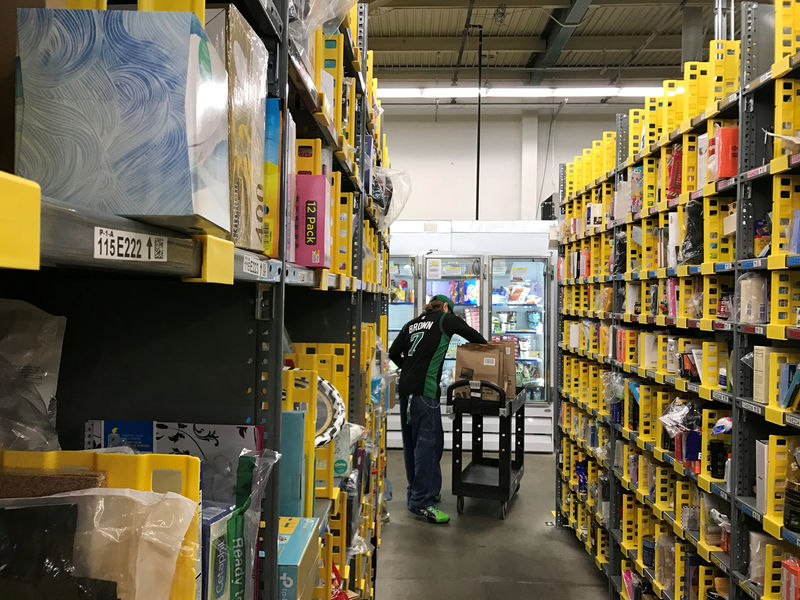By Stanley White
TOKYO (Reuters) - Japan's core machinery orders robustly exceeded expectations in July, rebounding from the previous month's decline and firming up the view that capital expenditure will continue to expand and boost overall economic growth.
The 11.0 percent rise in core machinery orders, a highly volatile data series regarded as a leading indicator of capital spending, soared over the median estimate for a 5.7 percent increase seen in a Reuters poll and was the fastest increase since January 2016.
Overseas machinery orders rose 6.0 percent month-on-month in July, recovering from a 12.0 percent decline in June, a sign that export demand will hold up in the face of growing trade friction - for now.
However, the outlook is not without risks. A Reuters tankan survey showing business confidence among Japanese manufacturers slipped in September from a seven-month high due to worries over an escalating trade war between the United States and China.
Nonetheless, economists still expect companies to invest more to cope with growing labor shortages, although businesses may hold back spending if Japan gets dragged into a trade war with the United States.
"Japanese companies' need to invest in new equipment is so strong that they are willing to do so even though trade protectionism clouds the outlook," said Hiroshi Miyazaki, senior economist at Mitsubishi UFJ Morgan Stanley (NYSE:MS) Securities.
"This is clearly driven by labor shortages. There is room for capex to rise further and add to economic growth."
Japan's labor pool is dwindling due to its rapidly aging population, and companies across a broad range of industries are investing more in automation and IT systems to operate with fewer staff.
The government and the Bank of Japan have long argued that increased capital expenditure will improve stodgy domestic demand, but business investment is closely tied to corporate sentiment and could gradually fade if companies become more cautious.
"We haven't seen the impact yet in the hard data, but looking ahead I am slightly worried about the impact from the trade war," said Hiroshi Shiraishi, senior economist at BNP Paribas (PA:BNPP) Securities.
"It's not just about domestic capex. Japan produces capital goods for export that can be affected."
The Reuters tankan, published earlier on Thursday, showed the sentiment index for manufacturers stood at 26 in September, down four points from the previous month, weighed by declining confidence in areas such as electric machinery, metal products/machinery, textiles/paper and chemicals.
Business is also concerned that U.S. President Donald Trump will turn his attention to Japan, asking for specific measures from Japan to lower its trade surplus with United States - backed up by the threat of high tariffs.
Thursday's cabinet office data showed manufacturers' machinery orders rose 11.8 percent in July, rebounding from a 15.9 percent decline in the previous month, thanks to increased orders from makers of chemicals, heavy machinery and processed food.
Service-sector orders rose 10.9 percent in July, versus a 7.0 percent decline in the previous month, thanks to bigger orders from wholesalers, retailers, shipping companies, and telecommunications businesses.
Separate data this month showed a modest increase in household spending amid rising real wages, offering hope that consumer spending will also support growth.
